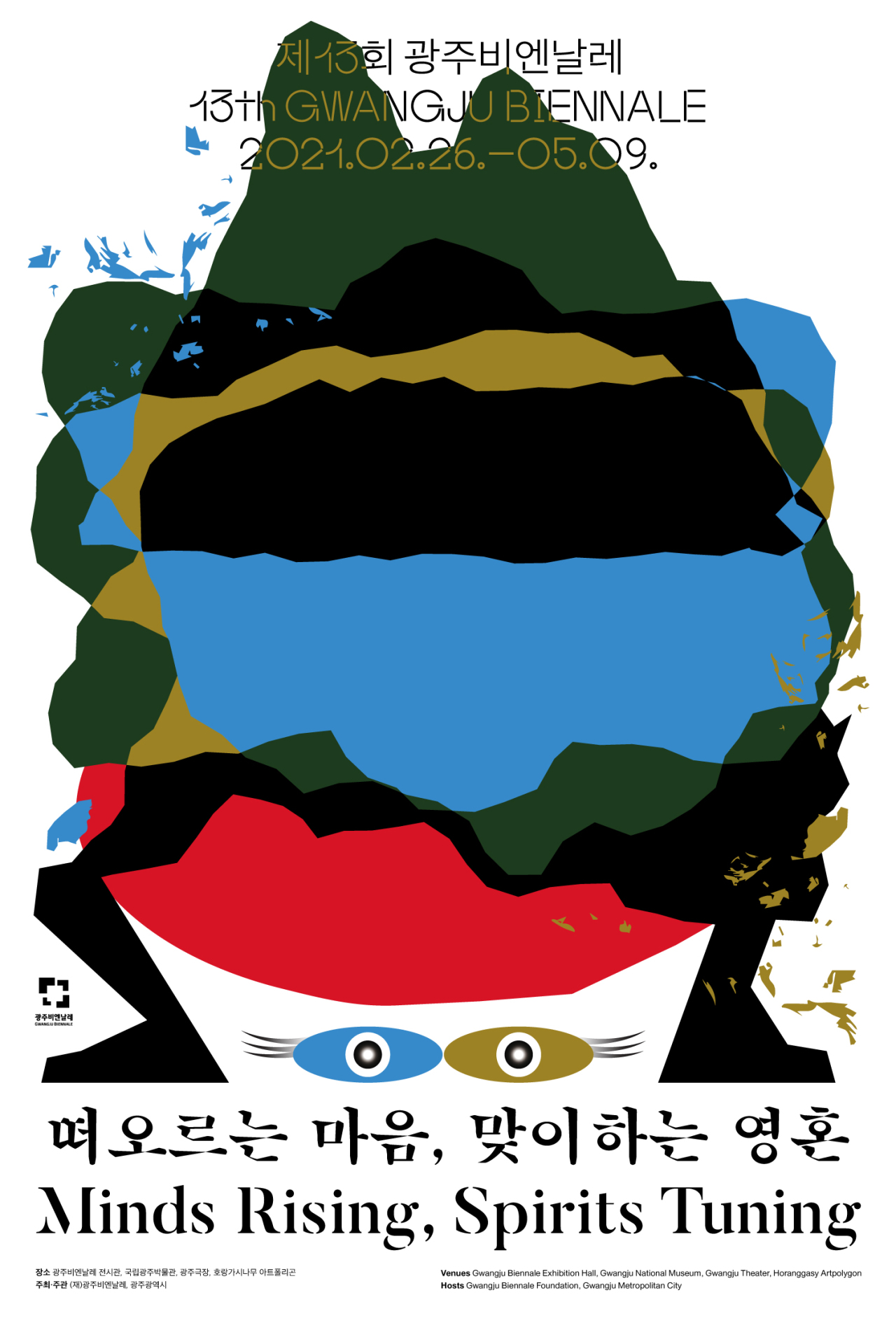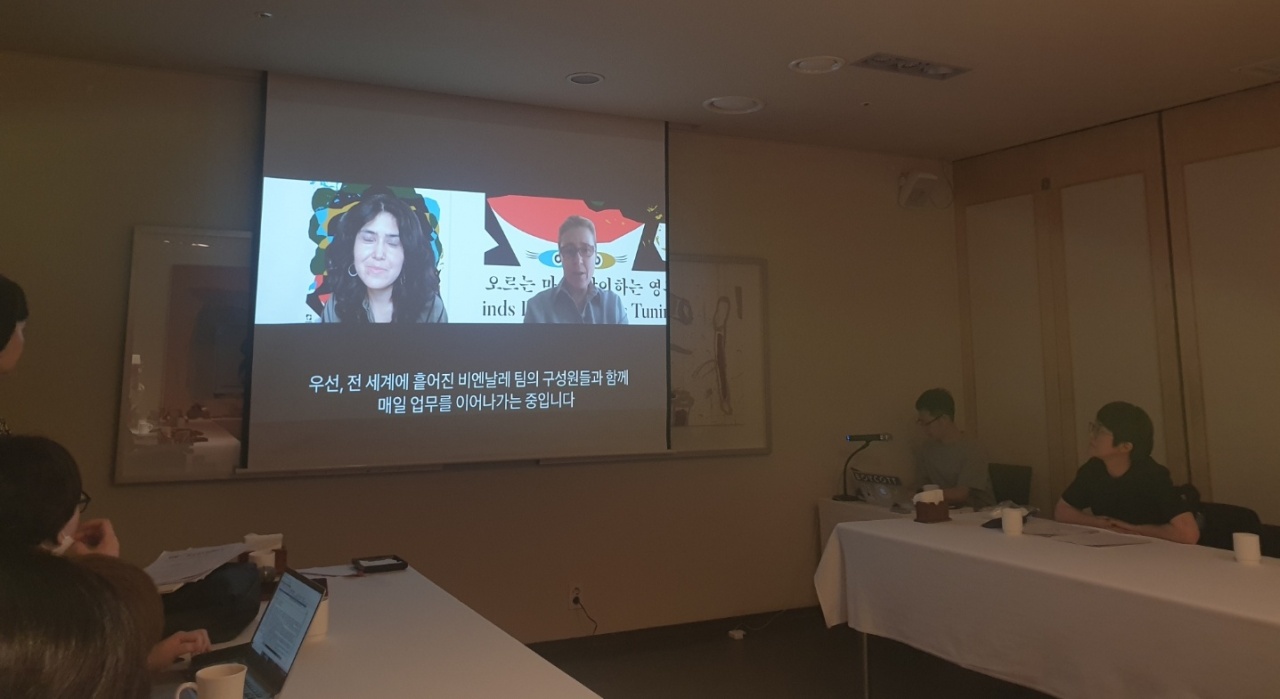 |
A poster for the 13th Gwangju Biennale, “Minds Rising, Spirits Tuning” (Gwangju Biennale Foundation) |
The 13th Gwangju Biennale -- which was postponed to February 2021 -- will be held across Gwangju, including the town of Yangnim, a historic place that is witness to the city’s modern history, for the first time, and will feature feminism, which has emerged as one of the most important themes around the world.
The art event will be held from Feb. 26 to May 9 next year with the theme, “Minds Rising, Spirits Tuning,” pushed back from September this year due to the COVID-19 pandemic. The venues include the Gwangju Biennale Exhibition Hall, Gwangju National Museum, Gwangju Theater -- the oldest existing theater in Korea -- and Yangnim, where volunteer civilian troops battled against their Japanese colonial rulers.
Details on the artworks, however, remain undisclosed to the public due to the change in opening date.
“The international artists who visited Gwangju in January planned to visit the city again in May as a follow-up to set up their artworks, but we had to hold off the schedule as COVID-19 persists,” Kim Sun-jung, president of the Gwangju Biennale Foundation, said on Thursday at a press conference at Dalgaebi Conference House in Jung-gu, central Seoul.
The two co-directors, Natasha Ginwala and Defne Ayas, who are based in Sri Lanka and Germany, respectively, participated in the press conference via video call. Regarding the COVID-19 era, the two directors said imagination is what suffers the most for the artists.
 |
A press conference on the 13th Gwangju Biennale was held Thursday at Dalgaebi Conference House in Jung-gu,central Seoul, through a video meeting with two co-artistic directors, Defne Ayas and Natasha Ginwala. (Park Yuna/The Korea Herald) |
“It is very difficult to imagine differently when one is isolated because when we are among each other, the best idea at the time and positive spirit that makes the imagination rush into different directions,” Ginwala told the reporters.
“Imagination is what is required from all of us -- in your work and for our curatorial works,” said Ayas. “But on the other side, there is an opportunity because we are all on the same side and connected more deeply.”
The Gwangju Biennale Foundation offers an online journal bimonthly until the biennale opens next year on its newly launched biennale website. The first journal includes an essay, “A History of Women in Gwangju: Only Records Can Prove Our Lives,” examining the lives of women from ancient times to until the 1890s.
“Feminism is one of the most important themes in the biennale,” Kim said during the press conference. “Stronger Than Bone,” a book that explores a variety of discussions on feminist issues, will be published to coincide with the biennale.
By Park Yuna (
yunapark@heraldcorp.com)





![[Herald Interview] 'Trump will use tariffs as first line of defense for American manufacturing'](http://res.heraldm.com/phpwas/restmb_idxmake.php?idx=644&simg=/content/image/2024/11/26/20241126050017_0.jpg)


![[Health and care] Getting cancer young: Why cancer isn’t just an older person’s battle](http://res.heraldm.com/phpwas/restmb_idxmake.php?idx=644&simg=/content/image/2024/11/26/20241126050043_0.jpg)
